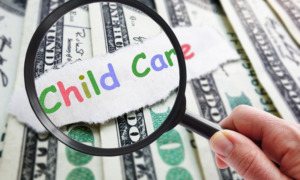Too many foster youth slip through the cracks of government bureaucracies, often with tragic consequences. Large caseloads may compel dedicated staffers to cut corners, while budget constraints can leave agencies with many unqualified and poorly trained workers.
Here, two foster youth talk about their experiences with official neglect.
Missing Due to Inaction
By Karen Haynesworth, 18
Last spring, the country was shocked when a 5-year-old girl in Florida’s foster care system, Rilya Wilson, was missing for 15 months before her foster care agency even noticed. Rilya’s social worker said she was visiting the girl when she was not.
But I am not surprised this happened. I’m a foster child, and I had a similar experience in the system. For three months, my new social worker did not check up on me. He didn’t even introduce himself over the phone. I had to find out who he was myself.
It started when I was transferred to another agency and was given a new social worker. I was expecting to meet him as soon as possible, but a month went by and I still didn’t know who my social worker was.
Like Rilya, I was living with a relative, my cousin. It was a good environment for me. But when my cousin got married, I didn’t get along with her husband. When I started having problems, I began thinking about leaving her home.
If my social worker had known I was having a problem, he might have found a way to get my cousin, her husband and me to talk and work things out. But that never happened because he never contacted me.
So after two months, I went to a friend’s house to live. At times my friend’s mother did not have enough money to go around, but luckily she still made sure I had food and a place to stay.
I wanted help from my agency, but I wasn’t getting it. They didn’t even know where I was living! Finally, I decided to go to the agency myself to confront my social worker.
When I got to the agency, I didn’t know who to ask for, so I gave the secretary my name and she located my worker. When he came out, he said, “Who are you?”
“I’m your new case,” I said, and told him my name. I also asked why he hadn’t met me yet.
He said he had a lot of paperwork, and would have gotten to my case soon.
But it had already been three months! Sometimes I wonder how long it would have been if I hadn’t gone to the agency.
I got angry. I said, “You don’t even know where I’m living! I’m supposed to be in my foster home but I’m not because I was having problems there! I could have been dead somewhere and you still would not have known until you felt like checking on me!”
He didn’t seem too concerned.
After that, I never moved back to my cousin’s house, even though it was one of the best placements I’d had.
I’m not saying all social workers are neglectful. Most really do care about the well-being of the children. And it’s true that social workers have a lot of work to do. Many should be given smaller caseloads, so they can give each kid proper attention.
But when caseworkers don’t or can’t do their jobs, they leave kids vulnerable and alone in their foster homes. I think that makes it easier for a foster parent to abuse or neglect a child and get away with it.
Last year The Daily News reported that in 2000 there were 2,316 reports of kids under 16 missing from New York City’s foster care system. In Tennessee, one out of every 20 foster kids is missing. That’s a lot of missing kids. Most of those cases were probably AWOL cases, like mine. But I think fewer kids might go AWOL if social workers were more informed.
The state of Florida wants to start keeping records of the DNA of all kids in their care, so that if kids are missing it will be easier to identify them. But I think there’s a better way to deal with the problem of missing kids in foster care: Make sure social workers can and will do their jobs.
No One Heard Our Cries for Help
By James Knight, 20
I am a 20-year-old male who practically grew up in foster care. I went into the system at the age of 7. My four siblings and I lived in an abusive foster home, yet no one heard our cries for help.
The foster mother who eventually adopted us was an emotionally unstable woman who disliked children, but was still given a license to provide and care for them. She often told us that she took us in for the money. She always said she couldn’t care less about us, as long as her bills were paid.
She beat us with any object she could get her hands on, and she never had mercy for our faces. She beat us with a thick cowhide belt which she slit into seven strips. She called the belt “Mr. Brown.” My siblings and I had welts on our bare skin for days due to the beatings. We were also beaten with pots and pans, a wooden brush, hangers, broomsticks and her fists.
Every time we yelled at the top of our voices for help, our foster mother turned up the radio so no one could hear our cries.
A stray dog should not have been placed in the care of my adoptive mother. There were many nights we went to bed hungry. She felt we didn’t deserve to eat because we were “bad.” I believed the harsh words she said because she was
an adult.
No matter how much we begged and pleaded to the foster care system, police officers and the Child Abuse Registry Hotline, no one reached out to help us. For example, when I was 11 or 12 years old I called the hotline and a man assured me they would look into my case.
I felt relieved, knowing I was not alone. A social worker arrived the next day. My adoptive mother denied the abuse.
The social worker then asked us – in her presence – if we were being abused. Since we were terrified of our adoptive mother, of course we said no.
The case was immediately dismissed. We felt helpless and trapped because we had nobody to turn to.
When we ran away from home, a police officer took us back and said, “You kids have it made living here. This is a clean home with plenty of food in the refrigerator, and a loving mother to provide for your needs. You kids are crazy not wanting to stay here.” As soon as the officer left, the beatings continued where they had left off.
My adoptive mother was a totally different person in the presence of the police. She would put on an act that looked so natural. She would give the police coffee and donuts and then she would show them her immaculate house – that my siblings and I had cleaned.
The naked eye can be very deceiving. You can see things you only want to see. While riding in the back seat of the police car, I heard the officers mumble, “Damn, we gotta go through all this paperwork from these kids’ nonsense.” I strongly believe the officer felt his job would be easier if he ignored our pleas for help.
People must realize children are terrified of telling someone that they’re being abused. I went to school many days with cuts and bruises on my face. My teachers often asked what happened, and I would always say I fell or tripped over my shoelaces. I was afraid no one would believe I was being abused.
I eventually left the abuse by refusing to go back home, and when I was 14 I was finally signed into a new placement. My siblings stayed years longer with my adoptive mother.
Based on my experiences, I feel there’s a great need for the foster care system to make drastic changes:
• Child care workers should talk to children outside of the home when there is a suspicion of abuse. A child is more comfortable revealing abuse away from adults. My siblings and I couldn’t reveal the abuse in front of our adoptive mother. Also, interview the children separately. They won’t feel pressure from a sibling to hide the abuse.
• Social workers and child care workers should make surprise visits to check on allegations of abuse. Letting the person know you’re coming by isn’t an effective way to investigate the home.
• Screen foster parents more thoroughly. My adoptive mother should never have been approved as a foster parent.
• Increase the budget for foster care. A lack of well-trained and well-paid social workers and caseworkers in the system will only lead to more children being abused.
This story was very painful to write because it brought back so many horrible memories, but I have to keep in mind how lucky and thankful I am to be alive and well. I see myself as a survivor, not a victim. I wish a lot of other children could feel the same way.
© 2002, Foster Care Youth United, Youth Communication/New York Center. www.youthcomm.org.

























